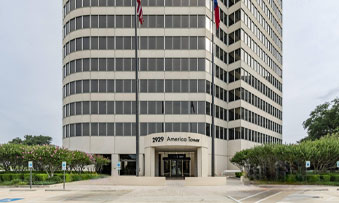Atlanta Catastrophic Injuries Lawyer
When negligence leads to a catastrophic injury, the impact extends far beyond the physical pain, it also alters the course of lives, creates immense emotional distress, and imposes staggering financial burdens on victims and their families. In Georgia, individuals facing such devastating circumstances need more than just medical care; they need experienced legal advocates who understand the unique complexities of catastrophic injury claims.
Our Atlanta catastrophic injuries lawyer team recognizes the profound challenges you face after a life-altering accident and are dedicated to helping you navigate the difficult path toward recovery and justice, fighting tirelessly to secure the resources needed to rebuild your life. Call us today if you have experienced a catastrophic injury caused by another at 404-975-1775 for a free case evaluation.
Understanding Catastrophic Injuries in Georgia
The term “catastrophic injury” signifies far more than just a severe injury. It describes harm so profound that it results in long-term or permanent disability, impairment, or disfigurement, fundamentally changing the victim’s life. These injuries often prevent individuals from returning to their previous work, engaging in daily activities, maintaining relationships as before, or enjoying the quality of life they once knew.
In Georgia, the law acknowledges the unique severity of these injuries. While the term is broadly understood in personal injury law to encompass any injury causing long-term or permanent disability significantly affecting life, specific definitions exist within certain legal contexts. For instance, Georgia’s workers’ compensation code explicitly defines catastrophic injuries like severe paralysis from spinal cord damage, amputations, severe brain injuries, extensive burns, and total blindness. Similarly, causing “serious injury” while driving under the influence or recklessly driving constitutes a felony, highlighting the legal gravity associated with causing such harm.
These specific differences show that Georgia understands that injuries are not all the same, and someone who causes a catastrophic injury should be dealt a greater punishment than that of someone who causes lesser harm.
Common Types of Life-Altering Injuries Our Atlanta Catastrophic Injuries Lawyers Encounter
While catastrophic injuries can arise from various severe traumas, certain types are frequently encountered in these devastating cases:
- Traumatic Brain Injuries (TBI): A blow to the head or penetrating injury can disrupt normal brain function, leading to lifelong consequences.
- Spinal Cord Injuries (SCI): Damage to the spinal cord often results in permanent neurological deficits, including partial or complete paralysis (paraplegia or quadriplegia).
- Severe Burns: Second-degree burns covering large areas or third-degree burns, especially those affecting the face or hands, cause excruciating pain and lead to significant scarring, disfigurement, and loss of mobility. .
- Amputations: The traumatic loss of a limb (arm, hand, foot, or leg) results in permanent disability and fundamentally alters a person’s ability to work and perform daily tasks.
- Paralysis: The loss of muscle function, often linked to SCI but potentially resulting from other neurological damage, can range from affecting the lower limbs (paraplegia) to all four limbs and the torso (quadriplegia).
- Other Catastrophic Injuries: Some other injuries that are common catastrophic injuries include severe internal organ damage, multiple complex bone fractures requiring numerous surgeries, total loss of vision or hearing, and significant nerve damage resulting in chronic pain or loss of function.
The Lifelong Impact: Physical, Emotional, and Financial Toll
The consequences of a catastrophic injury ripple through every aspect of a victim’s life. Recovery, if possible, is often long, arduous, and incomplete. Our Atlanta catastrophic injuries lawyer team helps our clients recover compensation for things such as:
- Extensive Medical Needs: Multiple surgeries, prolonged hospitalizations, intensive rehabilitation (physical, occupational, speech therapy), ongoing medical treatments, medications, and potentially lifelong reliance on assistive devices or personal care attendants.
- Inability to Work: Many catastrophic injury survivors are permanently prevented from returning to their previous occupation, and some are unable to engage in any form of gainful employment whatsoever.
- Astronomical Costs: The financial burden is often overwhelming. Medical bills can quickly reach hundreds of thousands or even millions of dollars over a lifetime. Combined with the loss of income (both past wages and future earning capacity), the cost of necessary home modifications, specialized equipment, and long-term care can lead to financial ruin for families. The scale of these costs is reflected in Georgia data showing motor vehicle traffic-related incidents alone accounted for $2.2 billion in hospital and emergency room charges in 2021.
- Profound Emotional and Psychological Trauma: Beyond the physical pain, victims often grapple with chronic pain, depression, anxiety, post-traumatic stress disorder (PTSD), grief over lost abilities, loss of independence, and a diminished enjoyment of life. These injuries also place immense strain on family relationships and require significant emotional adjustments for everyone involved.
The Devastating Reality: Catastrophic Accidents in Georgia – Causes and Statistics
Negligence Leading to Tragedy
Many catastrophic accidents stem from specific acts of negligence:
- Distracted Driving.
- Driving Under the Influence (DUI)
- Speeding and Aggressive Driving
- Trucking Negligence
Catastrophic Accidents in Atlanta: By the Numbers
Recent statistics paint a sobering picture of the risks on Georgia’s roads and in its workplaces:
- Traffic Fatalities & Serious Injuries: Georgia roads have become increasingly dangerous. Preliminary data for 2022 showed 1,829 motor vehicle traffic fatalities, a 2% increase from 2021 and the highest number recorded since 1994. While suspected serious injuries saw a slight decrease in 2022 to 8,660 from 8,937 in 2021, this followed a troubling period of sharp increases – suspected serious injuries surged by 66% between 2017 and 2021. This pattern suggests that while the total number of crashes may fluctuate, the severity of those crashes resulting in life-altering injuries remains a critical concern. Georgia consistently ranks among the top states for total traffic fatalities nationwide (4th highest in 2021 and 2022). (Source)
- Specific Traffic Risks: Certain groups face heightened risks. In 2022 compared to 2021, motorcyclist fatalities increased by 17% and serious injuries by 10%; pedestrian fatalities rose 7% and serious injuries 6%; and bicyclist fatalities tragically doubled, with serious injuries increasing by 28%. Furthermore, a staggering 44.8% of fatally injured front-seat passenger vehicle occupants (age 13+) in daytime crashes in 2022 were unrestrained by seatbelts. While failure to wear a seatbelt doesn’t cause the crash itself, it drastically increases the likelihood of catastrophic injury or death when a crash occurs, highlighting how preventable factors contribute to tragic outcomes. (Source)
- Workplace Fatalities: In 2023, Georgia recorded 192 fatal occupational injuries, a decrease from 209 in 2022 but still a significant number. The leading cause of these deaths was transportation incidents (69 fatalities, 36% of the total), followed by contact with objects/equipment (35 fatalities, 18%), falls, slips, and trips (29 fatalities, 15%), and violence/other injuries by persons or animals (32 fatalities, 17%). The prominence of transportation incidents reinforces the inherent dangers faced by those who drive for work and the overlap between road safety and occupational safety. (Source)
How Atlanta Catastrophic Injuries Lawyers Can Help With Your Claim
Understanding your legal rights is crucial after suffering a catastrophic injury due to someone else’s negligence. Georgia law provides avenues for seeking compensation, but strict rules and deadlines apply. Navigating these laws effectively often requires experienced legal guidance.
Georgia’s Statute of Limitations
One of the most critical laws affecting your claim is the statute of limitations. In Georgia, the law sets a firm deadline for filing a lawsuit to recover damages for personal injuries. Generally, you must file your lawsuit within two years from the date the injury occurred (typically, the date of the accident).
This two-year window is strict. If you fail to file a lawsuit within this timeframe, you will likely lose your right to seek compensation through the courts forever, no matter how severe your injuries are or how clear the other party’s fault may be. While very limited exceptions exist, relying on them is risky. The complexity of catastrophic injury cases – involving extensive medical treatment, long recovery periods, and thorough investigation – makes this deadline even more challenging. Victims need time to heal and understand the long-term prognosis, yet the legal clock starts ticking immediately. This inherent tension underscores the absolute necessity of consulting with the Atlanta Catastrophic Injuries Lawyers as soon as possible after a serious accident to preserve your legal rights.
Shared Responsibility: Understanding Georgia’s Comparative Negligence Law
In many accidents, fault may not rest entirely with one party. Georgia law addresses situations where the injured person may share some responsibility for the accident through a system called “modified comparative negligence”. This law has two key components:
- The 50% Bar Rule: If the injured person (the plaintiff) is found by a judge or jury to be 50% or more responsible for causing the accident, they are barred from recovering any damages from the other at-fault party.
- The Reduction Rule: If the plaintiff is found to be partially at fault, but less than 50% responsible (i.e., 0% to 49% at fault), they can still recover damages. However, the total amount of damages awarded will be reduced proportionally by their percentage of fault. For example, if your total damages are determined to be $1,000,000, but you are found 20% at fault, your recoverable damages would be reduced by 20% ($200,000), leaving you with an award of $800,000.
Insurance companies and their lawyers frequently use comparative negligence arguments to try and reduce the amount they have to pay or to deny claims altogether by arguing the victim was 50% or more at fault. Successfully countering these arguments requires careful investigation and skilled legal advocacy focused not just on proving the defendant’s negligence, but also on minimizing any potential finding of fault against the plaintiff. Having our Atlanta catastrophic injuries lawyer team by your side who knows what to expect from insurance companies helps combat these tactics.
Schedule Your Free, No-Obligation Consultation
Taking the first step is easy and risk-free. Merritt & Merritt Law Firm offers a free, confidential consultation to discuss your accident and injuries. During this meeting, you can share your story, ask questions, and learn about your legal options. There is no obligation to hire our firm afterward. It’s an opportunity for you to get informed advice tailored to your specific situation. Contact Merritt & Merritt Law Firm now at 404-975-1775 to schedule your free consultation.






